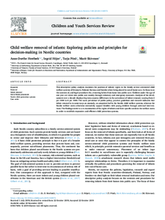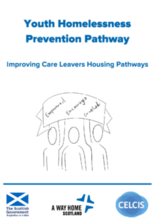

Displaying 691 - 700 of 1653
This descriptive policy analysis examines the position of infants’ rights in the family service orientated child welfare systems of Denmark, Finland, Norway and Sweden when being placed in out-of-home care.
A European network of fostering organisations, APFEL (Acting for the Promotion of Fostering at European Level) is holding its eighth European conference entitled Foster Care Transforming Lives in Edinburgh on 20 November, in partnership with The Fostering Network.
The aim of this study is to utilise nationwide social services data from two countries (Northern Ireland (NI) and Finland), with similar populations but different intervention policies, linked to a range of demographic and health datasets to examine the mental health outcomes of young adults in the years following leaving care.
In this opinion piece for the Guardian, Harriet Ward - Emeritus professor of child and family research of Loughborough University - argues that UK policy since the passage of the Children Act of 1989 has moved away from promoting children’s satisfactory development and welfare.
This paper brings new understanding about the way in which child neglect is identified by school staff in Wales.
In this piece for the Guardian, Lauren Parker, a finalist in Coram Voice’s creative writing competition for young people in care, writes about her experience of becoming a parent while in foster care.
The thesis consists of four interrelated empirical studies that address different aspects of poor educational outcomes among children with out-of-home care (OHC) experience by means of analyses of longitudinal survey and register data, and evaluations of two interventions aimed at improving their basic academic skills.
The purpose of this study was to assess the possible impact of parents’ migration on emotional and behavioral problems of their left-behind children.
This report and recommendations have been developed to improve the housing journey of care leavers in Scotland, and prevent homelessness for people with experience of care.
This conceptual chapter from the book Education in Out-of-Home Care argues that efforts to improve educational outcomes for care experienced young people need rethinking.



